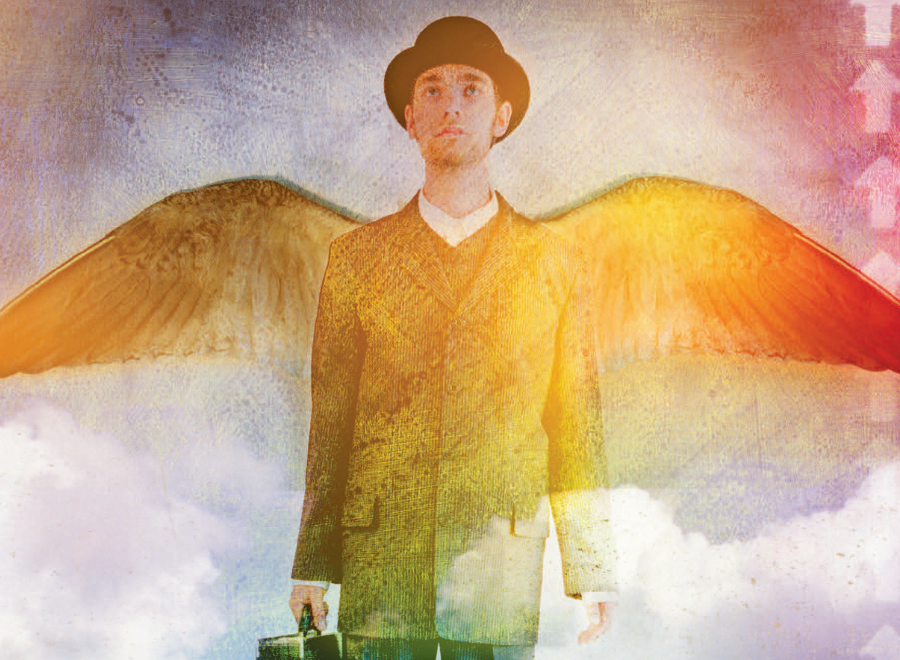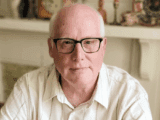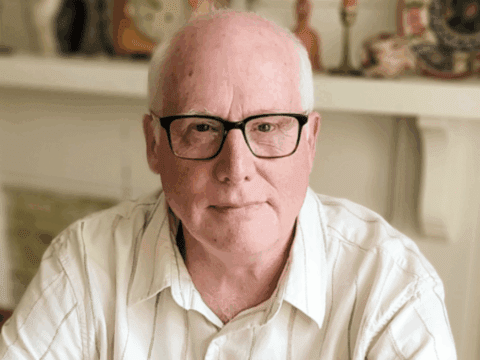About a year ago, one of my editors at the Globe and Mail called me into his office and suggested I do a weekly column on philanthropy. I wasn’t keen. The plan was to do a short profile every Saturday in the business section on someone who had made a substantial donation to a worthy cause. I’d done a few stories on philanthropy but wasn’t sure I could drum up a suitable candidate every week.
Despite my reservations, I agreed to give it a try. I had felt for a long time that the charitable sector didn’t receive much media coverage. We tend to focus too much on stories about someone making a big donation without looking at what is driving philanthropy. I hoped that by doing this column, we would at least scratch the surface of a side of philanthropy we don’t hear much about.
You may unsubscribe from any of our newsletters at any time.
But where would I start? I called up a couple of charity contacts and asked for some help finding people to profile. The first call led me to Andrew Faas, a former executive at Shoppers Drug Mart Corp. and a cancer survivor who donated more than $700,000 to fund drug research and a pilot project that helps cancer patients find funding for various treatments. The second call turned up Jerry Halliday, the chief executive of an auto parts company in Windsor, Ont., who contributed $1.5 million to kick-start a local program to help retrain unemployed workers.
Although I was looking for two quick hits to get the column going, I became enthralled by the stories both men told me. Faas talked about his battle with leukemia and how he convinced Shoppers to match some of the money he contributed. Halliday explained how he purchased an old building in downtown Windsor where he planned to house a range of non-profit services. When I asked why he bothered, Halliday replied, “I think there is just a huge need. There are so many broken families.”
Those first two columns were barely 200 words each, but they had an immediate impact. Suggestions began pouring in from readers recommending relatives, friends, colleagues or themselves as potential column subjects.
Since then, there have been more than 40 Giving Back columns. The longer I do it, the more I’m struck by the number of executives, small business owners and just ordinary Canadians who take on incredible projects without any fanfare.
Many business people are driven to donate by something that has touched them personally. John Hunkin, the former CEO of the Canadian Imperial Bank of Commerce, got involved with the Coady Institute at St. Francis Xavier University in Nova Scotia because his wife heard a presentation from the head of the college and was impressed by the international development work it was doing. That led Hunkin and his wife to take a trip to Kenya where they became even more committed. Hunkin has donated $1 million to the institute.
Then there was Richard Homburg, a Halifax-based developer, who rarely gives interviews about his company. But when I called to ask about a $5-million gift he made to Saint Mary’s University in Halifax, he wouldn’t get off the phone. He told me that six years ago, he became so ill he was partly paralyzed. He managed to recover thanks to treatment at two European health centres. Homburg was so impressed with the treatment that he felt Halifax needed a similar facility.
It’s not all corporate types. Ninety-six-year-old Ann Crain of Ottawa donated $1-million worth of land to help the Rotary Club build a new respite centre for families with disabled children. Her daughter told me that her mother was involved in so many charities, “We’ve had to tell her, ‘Enough, you can’t give any more this year.’”
Randy Shiff of Toronto wrote to tell me about me his 17- year-old son, Jacob, who had collected 1,200 pairs of shoes for children in Africa. I called Jacob. He said the idea came from a discussion his father had during a mission trip to Ethiopia. As the elder Shiff was about to leave, a local doctor asked if he had any extra shoes. The doctor explained that many people don’t have proper footwear, resulting in serious injuries.
Jacob was struck by the idea and started a shoe drive at his school, Community Hebrew Academy of Toronto. Soon, two other schools joined in and in no time the Shiff basement was piled high with shoes. Jacob figured out a way to get the shoes to Africa, and he was on hand when they were presented to the Mother Teresa’s Missionaries of Charity order in Addis Ababa.
“The nuns were so happy to see us,” Jacob told me. “One nun said to me, ‘Without shoes, people can’t take steps forward.’”
Frequently, the column’s short length, still roughly 200 words on average, barely summarizes what the people involved tell me about their activities.
Robert Bateman spent nearly an hour explaining why he gave his entire personal art collection, worth $10.7 million, to Royal Roads University in Victoria. He talked about his love of wildlife, the Boy Scouts and how he planned to help build a new environmental education centre at the university. “The most important thing about the planet Earth to me is its variety,” he said. “And we are losing some of that variety.”
Robert Buller, a business professor at Kwantlen University College in suburban Vancouver, spent at least an hour telling me about the students in a sales course who, as part of their course work, solicit local businesses for donations to Kwantlen. Last year, the students brought in $250,000 worth of scholarships sponsored by a variety of companies.
Many columns have focused on small business owners like Bob Wright, who runs Oak Bay Marine Group in Victoria. Wright got tired of hearing competing theories about the impact of global warming on oceans and decided to donate $11 million to the University of Victoria to find the answer. “I thought, ‘Well, damn it, we are going to have to try to find the truth,’” he remembers. He added with a laugh that he hadn’t even graduated from high school.
My initial wariness about the column has long vanished, and it is now one of the highlights of my week. Perhaps it’s because reporters rarely get to write good news stories, and I’ve learned that readers eagerly seek them out.
It’s true that a variety of tax changes in the last decade have provided more incentive for people to donate. A cynic might say that all this giving is tax-motivated. But I have yet to run into anyone on the business or charity side who has shared that view (and I have asked repeatedly). Instead, countless people have told me that they’ve reached a stage where they’ve realized that there is more to life than just making money.
Take Kevin Campbell for example. He’s pushed his firm, Vancouver-based Haywood Securities Inc., to donate a portion of the fees it earns from various financing deals. When he worked on a mining deal in Mongolia, he took part of the firm’s fee and donated it to a local orphanage. He’s done the same thing on mining deals in the Yukon and China.
Why? He doesn’t get a tax break and the firm would be better off financially by keeping the full fee. He just felt it was the right thing to do.
When I asked Alfred Wirth of Toronto why he had given away more than $11 million in the last few years, he answered immediately: “I want to make the world a better place. To make the world a better place, just in some little way, is not too hard. We can all do something, all the time.”
Paul Waldie is a reporter with the Globe and Mail’s Report on Business. He lives in Toronto, where his family attends Runnymede United.
***
This story first appeared in The United Church Observer’s May 2008 issue with the title “On the worthy cause beat.”














